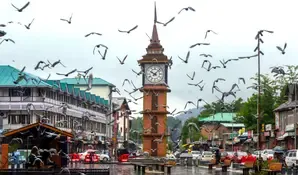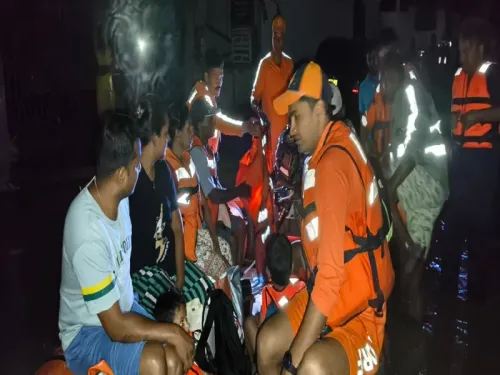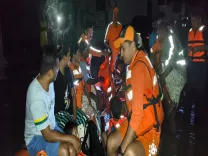What Transformations Has J&K Experienced Six Years After the Abrogation of Article 370?

Synopsis
Key Takeaways
- Significant increase in democratic participation and voter turnout.
- New educational institutions have been established.
- Post-2019 investments total Rs 80,000 crore.
- Infrastructure projects are enhancing connectivity and accessibility.
- Tourism has experienced a remarkable boost.
Srinagar, Aug 3 (NationPress) As Jammu and Kashmir commemorates six years since the abrogation of Article 370, the region showcases a remarkable transformation in governance, infrastructure, and civic engagement. The pivotal decision, made on August 5, 2019, eliminated the state's special status, integrating it more comprehensively into the Indian constitutional framework.
While political discussions persist, the government highlights significant advancements in public welfare, increased democratic participation, and economic rejuvenation.
A notable shift is the rise in democratic engagement.
Echoing the vision of former Prime Minister Atal Bihari Vajpayee with his mantra of “Insaniyat, Jamhooriyat, Kashmiriyat”, the region has experienced a 70 percent surge in voter turnout for local panchayat elections.
The District Development Council (DDC) elections in 2020 were the first grassroots democratic initiative following the abrogation, succeeded by municipal and panchayat elections.
The upcoming 2024 state legislature elections further solidified political involvement, with considerable participation from youth and women, including emerging Sarpanchs from South Kashmir.
Education and empowerment have also gained momentum. New educational institutions like IIT Jammu, AIIMS Awantipora (set to commence operations by late 2025), and a medical college in Reasi are enhancing access to higher education.
The region has seen UPSC qualifiers emerge from remote areas, and job fairs have spurred startup initiatives—many spearheaded by women.
Government statistics reveal investments totaling Rs 80,000 crore since 2019, with programs aimed at creating jobs and fostering entrepreneurship. Infrastructure projects have accelerated, exemplified by the fully operational Udhampur-Srinagar-Baramulla Rail Link (USBRL), connecting the valley to the rest of India.
Projects like the Zoji La Tunnel (set for completion in 2026), Z-Morh Tunnel, and Banihal-Qazigund Road Tunnel are improving mobility.
As of March, there have been 9,789 fiber-to-the-home connections installed under BharatNet, enhancing digital accessibility.
Tourism has flourished, with Srinagar being designated a “World Craft City” by UNESCO in 2024.
The number of daily flights to Srinagar has risen from 35 in 2019 to 125 in 2024.
Eco-tourism, heritage homestays, and artisan-led experiences are attracting record numbers of visitors, benefiting local economies.
While political debates continue, the government maintains that the abrogation has established a foundation for inclusive development, democratic resurgence, and enduring peace in Jammu and Kashmir.









